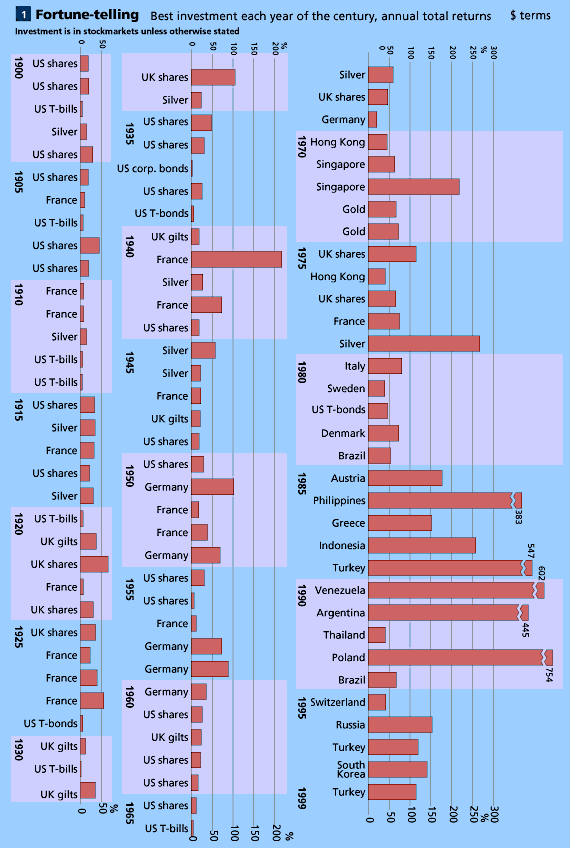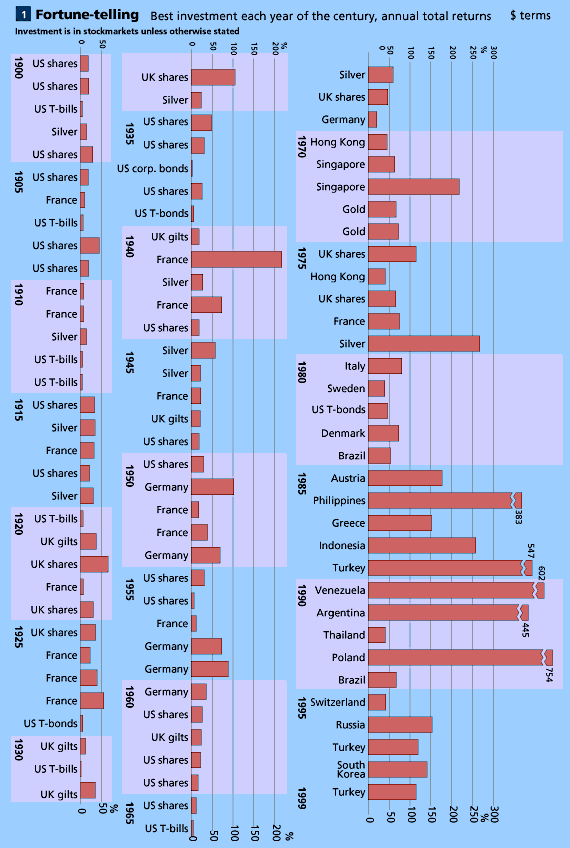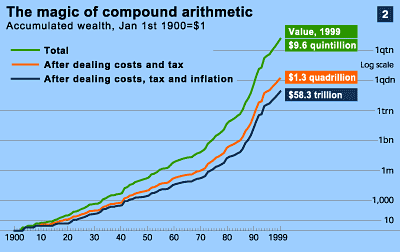
In an impressive speech back in 1963, a week before JFK was assassinated, Benjamin Graham – the first proponent of value investing – gave a speech in San Francisco.
Value investing world has posted the original typewritten script in full.
In the first half of the speech (to page 9) he outlines the challenges of market fluctuations and puts forward the approach of holding a mix of interest-bearing instruments and equities, and the fact that people are irrational, e.g. buying shares in good times and then claiming the same shares are bad in poor times.
In the second part, bearing in mind that markets are irrational, he delves deep into investment policies. His words are worth reposting fifty years later, as it’s still as true today as it was in 1963.
“Let me come to part two: what investment policy to follow under the conditions discussed?
“My views thereon are definite and strong. In my nearly fifty years of experience in Wall Street I’ve found that I know less and less about what the stock market is going to do, but I know more and more about what investors ought to do; and that’s a pretty vital change in attitude.
“The first point is that the investor is required by the very insecurity ruling in the world of today, to maintain at all times some division of his funds between bonds and stocks. My suggestion is that the minimum position of this portfolio held in common stocks should be 25% and the maximum should be 75%. Consequently the maximum holding of bonds would be 75% and the minimum 25% - the figures being reversed.
“Any variations made in his portfolio mix should be held within these 25% and 75% figures. Any such variations should be clearly based on value considerations, which would lead him to own more common stocks when the market seems low in relation to value, and less common stocks when the market seems high in relation to value.
“Now, whiles this is the classic langue of investment authorities, it is amazing how many people think in exactly opposite terms. That was brought home to me when a savings and loan representative came to me with questions. The first question he asked me was: ‘Don’t you think that common stocks are now less safe because of the decline in the market?’
“That hit me between the eyes.
“Here were financial people who could seriously consider that stocks less sage because they have declined in price than they were after they had advanced in price. The policy I propose to have more common stocks when the market seems to be low and less when it seems to be high, by value standards, is obviously opposed to the psychology of investors generally and to that of speculators always.”
Mr. Graham continues to then outline how you should hedge your portfolio based upon its value in a proportionate way between bonds and stocks, with a focus upon taking profits out of stocks and into bonds during bull times and into stocks and out of bonds during bear times. Equally, he focuses upon the simple view that the best stocks are those that are undervalued for investment.
In fact, when talking about which stocks to choose, he puts forward the view that “the investor choose either his own list of, say, 20 or 30 representative and leading companies, or else put his money in several of the well-established mutual funds.
“Many investors would think my prescription too simple. If they can get a result equal to the average in this easy way, why shouldn’t they try to get a substantially higher return by careful and competently advised selection? My short answer has already been given: if the investment funds as a whole can’t beat the averages, even pretty clever investors as a whole can’t do it either.”
So he recommends investing in stocks that are not overpriced (“growth stocks”) or new stock offerings with “absurdly high price-earnings ratios”, and concludes with a three pronged approach to investing:
“First, select stocks of important companies which sell on a no glamour basis. Some extraordinary results could have been obtained each year by buying the shares of the six companies in the Dow Jones Industrial Average which sold at the lowest multiplier of their recent earnings.
“Second, buy definitely ‘bargain issues’. Typically these would be shares that sold for less their value in working capital alone, with nothing paid for fixed assets and goodwill.
“Third, there is the wide field of ‘special situations’ – reorganisations, mergers, take-overs, liquidations, etc. This is a professional area, but it is not impossible for intelligent investors to profit handsomely form it if they approach security operations as they would a commercial business.”
It’s an excellent speech for those trying to work out their investment approach, and some sound advice in there too.
Mind you, if you want some further advice on investing, then you could do no harm in meeting Felicity Foresight.
Felicity Foresight is a fictitious lady invested by the Economist at the end of the last century (link to pdf of article):
“When Ms Foresight was born in America, on January 1st 1900, her parents invested $1 on her behalf (the equivalent of $22 in today’s prices) in a broad basket of American shares, to provide a little something for when she grew up. If the $1 had then simply been left there, with the dividends reinvested, that nest egg would now be worth almost $15,000. Enough for a splendid 100th birthday party perhaps. However, Felicity—a rather precocious child—reckoned she could do much better. Discovering at an early age that she possessed perfect foresight about the performance of financial markets, her parents encouraged her to adopt a more active investment strategy, moving her funds every year.
“At the start of each year, Ms Foresight would predict which asset and which market around the world—shares, bonds, cash, property, precious metal, etc—would experience the highest total dollar return (income plus capital gain) over the following 12 months. Then, ignoring all the usual rules about risk diversification, she would invest all her wealth in that single asset and not touch it for a year. This she has done on the first trading day of each year throughout this century, allowing all dividend and interest income to be reinvested. The lucky lady thereby enjoyed large gains, but never suffered any losses, such as the 89% plunge in American share prices in the three years after the 1929 crash.
“Chart 1 lists all her investment choices, year by year.

“Felicity not only has perfect foresight, she has also been canny enough to dodge taxes. And, living frugally, she has not spent a cent of her wealth. So how much is her initial $1 stake worth today? If Ms Foresight had succeeded in picking the best performing asset each year (of those assets for which we could find historical data on total returns), she would now be worth an incredible $9,607,190,781,673,150,000 or $9.6 quintillion—some 110m times richer than Mr Gates who has a mere $85 billion. It took 55 years to become a millionaire, but only another 31 years for her to make a trillion dollars, in 1985.”

I wish I had perfect foresight ... but, in the meantime, I’ll stick with Mr. Graham’s advice – don’t speculate, accumulate.
Chris M Skinner
Chris Skinner is best known as an independent commentator on the financial markets through his blog, TheFinanser.com, as author of the bestselling book Digital Bank, and Chair of the European networking forum the Financial Services Club. He has been voted one of the most influential people in banking by The Financial Brand (as well as one of the best blogs), a FinTech Titan (Next Bank), one of the Fintech Leaders you need to follow (City AM, Deluxe and Jax Finance), as well as one of the Top 40 most influential people in financial technology by the Wall Street Journal's Financial News. To learn more click here...






















